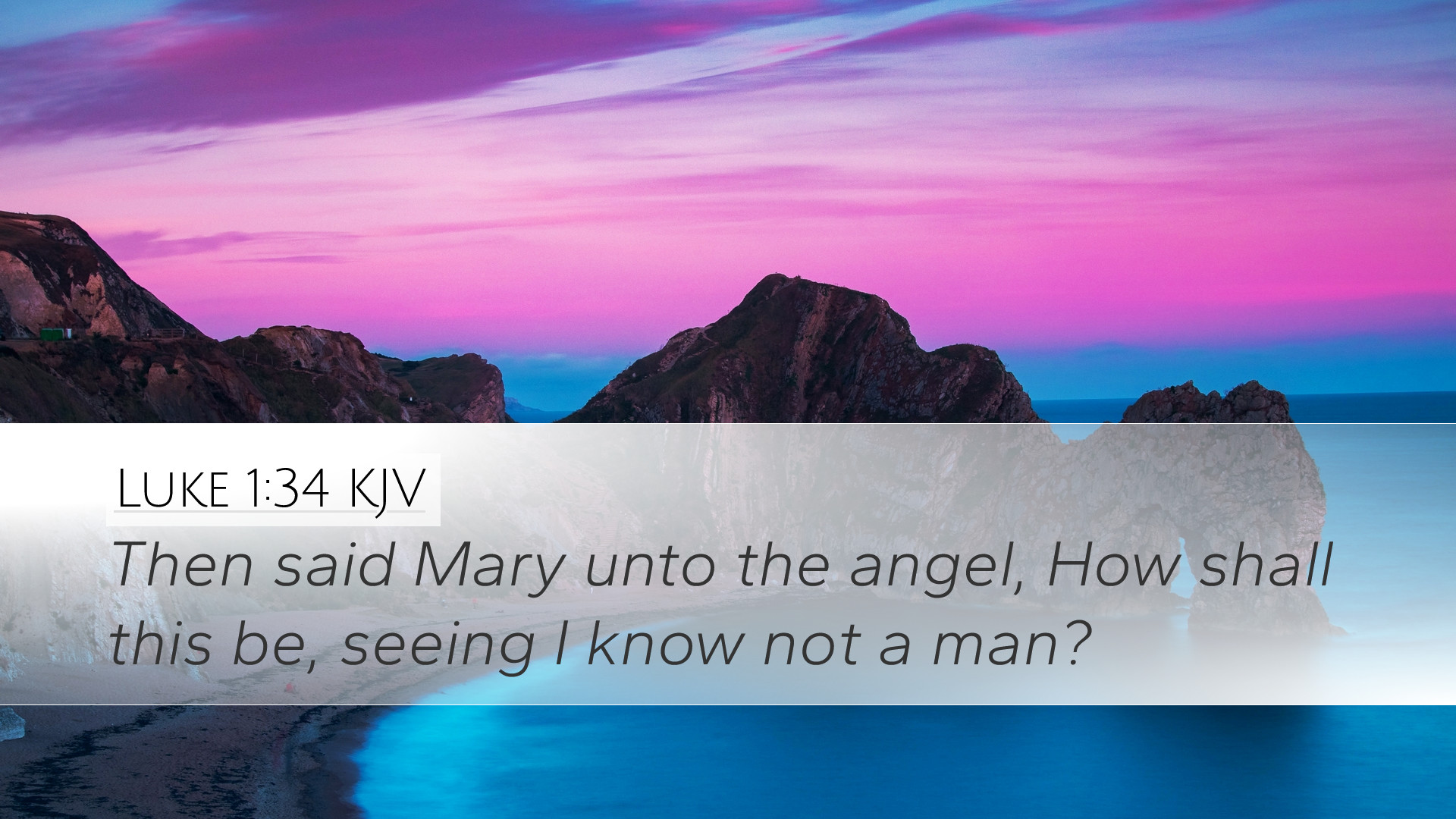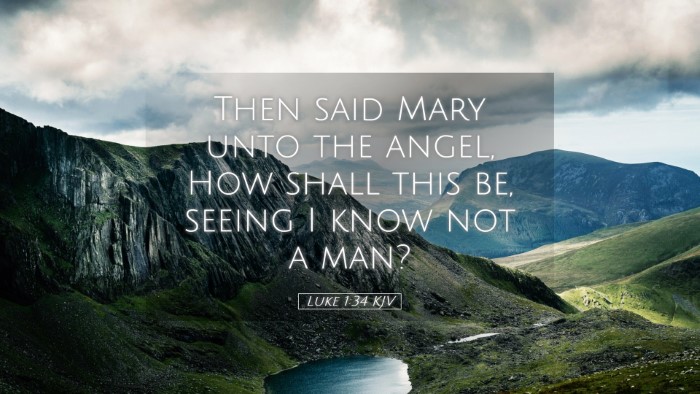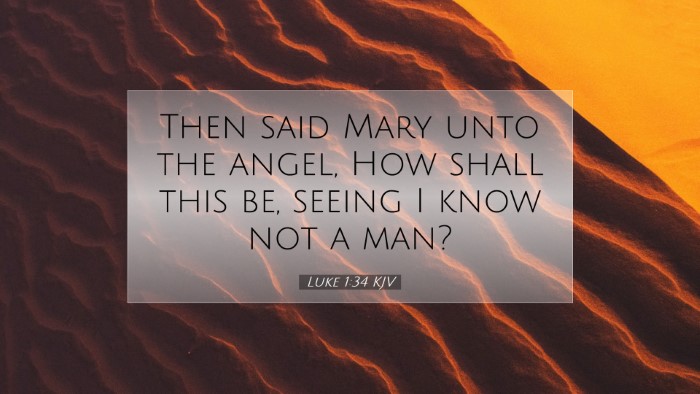Commentary on Luke 1:34
Verse Context: In Luke 1:34, we find Mary, a young virgin, responding to the angel Gabriel’s announcement of her impending conception of Jesus Christ. Her question, “How shall this be, seeing I know not a man?” expresses her astonishment and the complexity of the situation.
Insights from Matthew Henry
Matthew Henry emphasizes that Mary’s inquiry is not one of disbelief but of genuine confusion about the manner of the divine miracle. She acknowledges her virginity and the lack of natural means for conception. This reflects her understanding of and respect for divine order and the sanctity of her vows. Henry notes that Mary, unlike Zacharias, does not question the feasibility of the promise but rather seeks clarity on how the miraculous event will transpire.
- Humility: Mary's humble position is highlighted; she is a young girl, yet chosen to bear the Son of God.
- Faith Seeking Understanding: Her question indicates a desire for comprehension which is a form of faith, seeking to grasp the truth of the divine announcement.
Insights from Albert Barnes
Albert Barnes elaborates on the significance of Mary’s question in light of her circumstances. He articulates that her virginity is critical in understanding the nature of the incarnation. Barnes points out that Mary’s doubt is focused not on the promise itself but on the implementation of how it will occur. He further explains how God’s power is not limited by natural laws, illustrating the supernatural nature of Christ's birth.
- Divine Overshadowing: Barnes notes that the phrase "How shall this be?" indicates a recognition of a divine act that transcends human understanding.
- The Role of the Holy Spirit: He anticipates the angel’s response about the Holy Spirit’s work in her conception; thus, emphasizing the divine agency in the incarnation.
Insights from Adam Clarke
Adam Clarke offers a detailed examination of the linguistic and theological implications of Mary’s question. Clarke highlights that Mary's query reveals her awareness of the purity associated with her virginity. He discusses the implications of her impending motherhood and how it elevates the discourse around divine intervention in human affairs. Clarke also examines the cultural context of Mary's question, respecting the norms and expectations of a young Jewish woman.
- Historical Context: Clarke notes that in Jewish culture, virginity held significant social and religious importance which adds depth to her question.
- God's Sovereignty: He emphasizes that God’s intervention in human history is often unpredictable, extending beyond human rationality.
Theological Implications
The inquiry of Mary holds profound theological implications. It invites theological reflection on the nature of the Incarnation and the mystery of divine intervention. The virgin birth of Jesus signifies not only a miraculous event but also God’s direct involvement in human history, affirming the belief that God operates outside the normal constraints of the created order.
- Incarnation: This moment encapsulates the beginning stages of the Incarnation, where the divine becomes enfleshed in human form.
- Faith and Reason: Mary’s question represents a broader philosophical inquiry where faith and reason engage in dialogue, seeking to understand the mysteries of God.
Practical Applications
For pastors and theologians, the response of Mary can serve as a model for how to approach divine mysteries. Her attitude of inquiry encourages believers to ask questions and seek understanding while maintaining a posture of faith.
- Encouragement of Inquiry: Believers are encouraged to explore their faith deeply, asking questions and seeking clarity in their relationship with God.
- Faith in Divine Mystery: The passage underscores the importance of trusting God even amidst uncertainties and mysteries.
Conclusion
In conclusion, Luke 1:34 depicts a pivotal moment in the biblical narrative that invites readers into the mystery of God’s divine plan. The insights from Matthew Henry, Albert Barnes, and Adam Clarke enrich our understanding of Mary’s question and its implications. This verse not only serves as a testament to the miraculous nature of Christ’s birth but also exemplifies the interplay between faith and understanding, urging believers to remain open to divine revelations in their lives.


